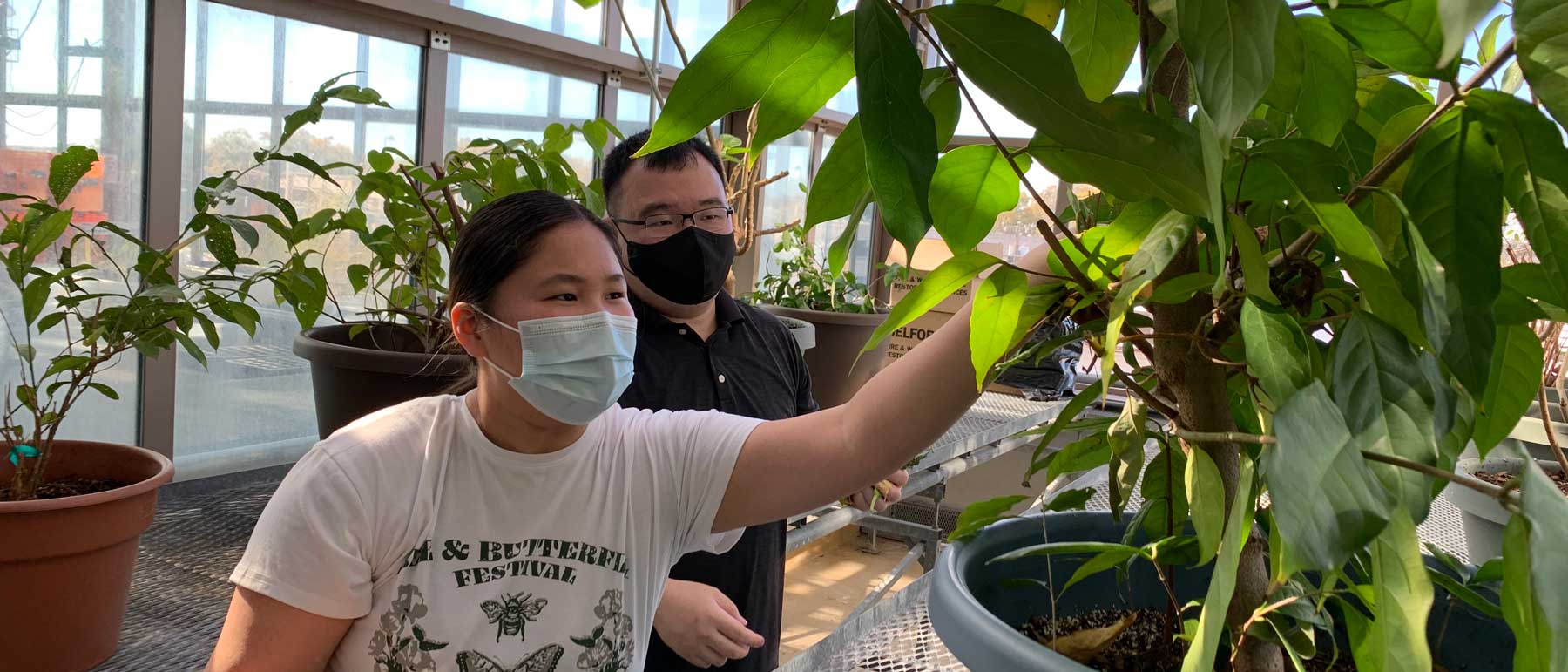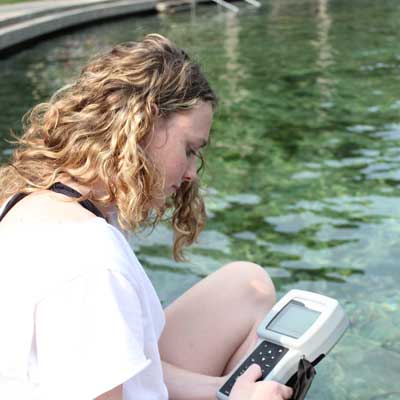Research
Faculty and students in the School of Life Sciences and Sustainability conduct impactful research across a broad range of disciplines, united by a shared focus on solving real-world problems at the intersection of biology, technology and the environment.
Laboratories, field stations and state-of-the-art facilities, including the Trani Center, the STEM Building and the Rice Rivers Center, support research spanning molecular biology, environmental monitoring, computational genomics and sustainability science. Students at all levels, from first-year undergraduates to Ph.D. candidates, are encouraged to participate in hands-on research across all SLSS programs.

Centers, Facilities and Labs
SLSS students and faculty conduct research in modern labs, centers and facilities that are equipped with high-end technology.
Undergraduate Research
From the beginning of their academic experience, SLSS students are encouraged to get involved with research.

Research Areas
The School of Life Sciences and Sustainability supports diverse and collaborative research efforts across three primary thematic areas:
Molecular, Cellular and Developmental Biology
Research in this area explores the molecular and cellular mechanisms that underlie life processes, with projects spanning neurodevelopment, craniofacial biology, membrane physiology, molecular immunology, plant development, microbiome studies, and cancer biology. Faculty and students engage in cutting-edge research, utilizing advanced laboratory techniques to address fundamental questions in biology, often in collaboration with partners from biomedical, clinical, or pharmaceutical fields.
Evolution, Ecology and Environmental Processes
SLSS researchers study evolutionary dynamics and ecological systems to understand the structure and function of ecosystems at local, regional and global scales. Significant projects include long-term vegetation monitoring on barrier islands, tidal wetland responses to sea-level rise, migratory bird behavior and the impacts of climate change on forested ecosystems. The Environmental Studies faculty emphasizes an interdisciplinary, applied approach, blending natural and social sciences to address complex environmental challenges through geospatial analysis, policy integration and sustainability planning.
Biological Data Science and Bioinformatics
The rise of genomics and computational biology has transformed how researchers approach biological questions. Our faculty and students at SLSS use mathematical models, computer programming and data science techniques to explore patterns in massive biological datasets. Projects include analyzing viral genomes, exploring microbial diversity and developing new computational tools to investigate disease evolution, genetic variation and ecological interactions. The program is highly project-driven, with students actively designing, conducting and interpreting their research.